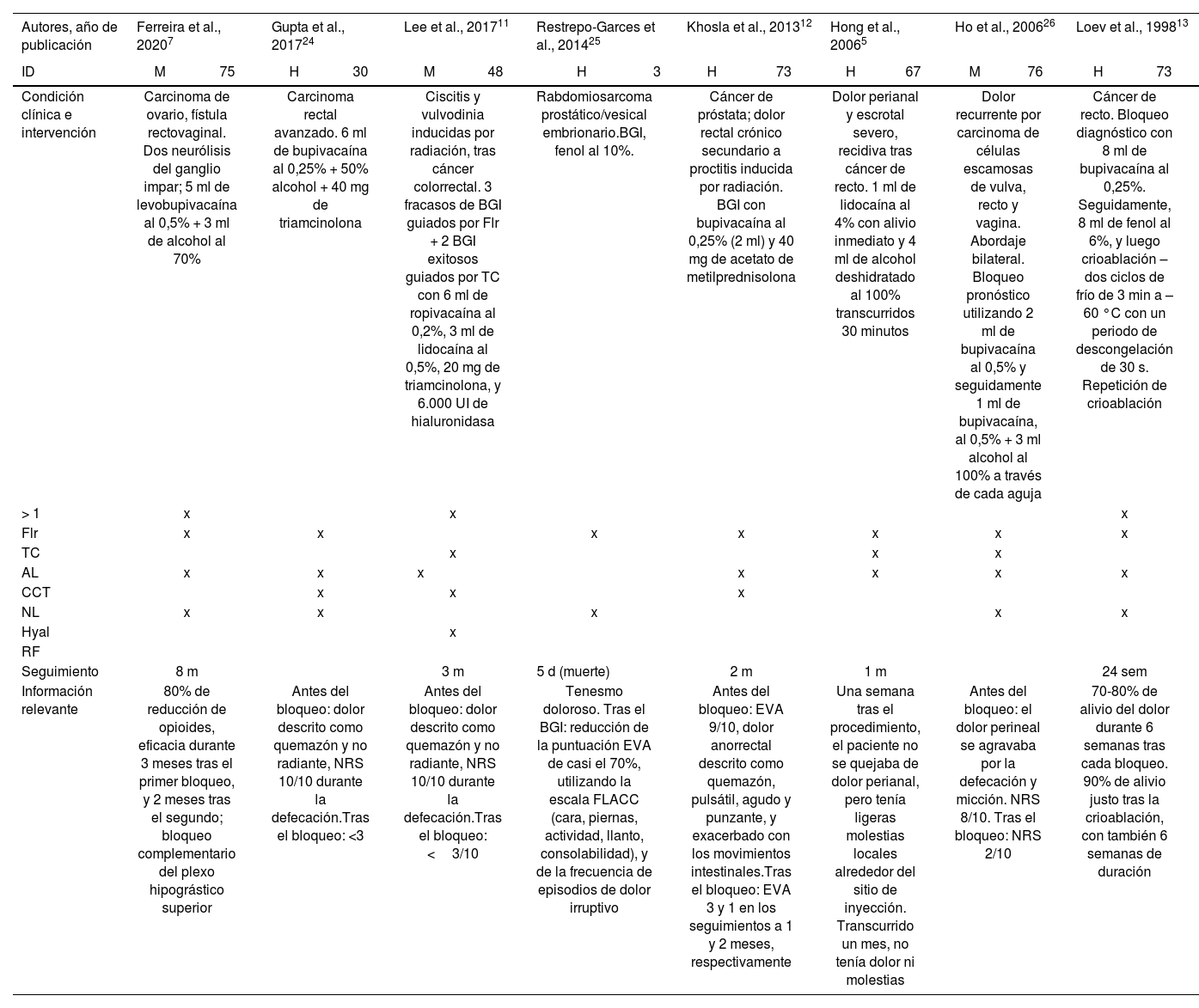El dolor crónico oncológico a menudo es difícil de controlar, especialmente en áreas anatómicas con inervación múltiple y compleja, como la región pélvica/perineal. El bloqueo del ganglio impar (BGI) es un procedimiento con creciente interés y aplicabilidad variada. Se ha utilizado en varios casos de dolor pélvico y perineal benigno y maligno resistente a la terapia conservadora. Realizamos una revisión de todos los artículos publicados en PUBMED® hasta el 30 de octubre de 2022 sobre BGI en dolor oncológico. Se identificaron 19 artículos con un total de 278 pacientes. Se incluyeron pacientes con dolor crónico por cáncer y dolor crónico posterior al tratamiento del cáncer. Revisamos las diversas técnicas, enfoques y opciones terapéuticas empleadas. No se reportaron efectos adversos graves. El BGI parece ser un procedimiento efectivo y seguro que debe considerarse en pacientes con dolor perineal refractario en pacientes oncológicos.
Oncologic chronic pain is often difficult to control, especially in anatomical areas with multiple and complex innervation, such as the pelvic/perineal region. The ganglion impar block (GIB) is a procedure with growing interest and varied applicability. It has been used in several benign and malignant causes of pelvic and perineal pain refractory to pharmacological treatment. We conducted a review of all articles published in PUBMED® until the 30th of October 2022 regarding GIB in oncologic pain. 19 articles were identified with a total of 278 patients. Both chronic cancer pain and chronic postcancer treatment pain patients were included. We reviewed the various techniques, approaches, and therapeutic options that were employed. No serious adverse effects were reported. GIB appears to be an effective and safe procedure that should be considered in patients with intractable perineal cancer-related pain.










